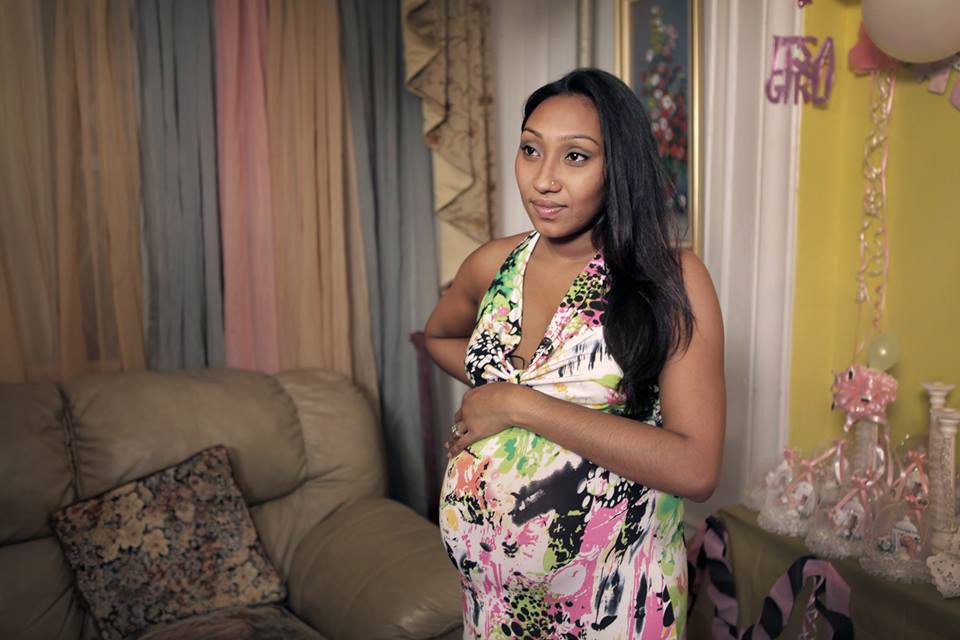Stephanie Wang-Breal has been producing and directing commercials, television shows, and
documentaries for the past 10 years. Tough Love is Wang-Breal’s second feature-length documentary. The film is slated for a national broadcast on the award-winning PBS series POV in the summer of 2015.
In 2009, Stephanie directed the award-winning feature-length documentary, Wo Ai Ni Mommy (I Love You, Mommy). The film
was nominated for an Emmy and was the recipient of three Grand Jury Best
Documentary Awards at the AFI/ Discovery Silverdocs Film Festival, the Asian
American International Film Festival, and the San Francisco International Asian
American Film Festival, as well as a 2011 CINE Special Jury Award. The film also had its
national television broadcast in 2010 on POV. (Press materials)
Tough Love will play at DOC NYC on November 15 and 19.
W&H: Please give us your description of the film playing.
SWB: Offering a rare look at the inner workings of the American child-welfare system,
Tough Love chronicles the lives of two parents — one in Seattle and one in New York
City — as each fights to be reunited with children taken from their custody. Through
intimate, verité footage of both families, we witness first-hand the complex and
daunting bureaucracy of America’s family courts. Moreover, we come to understand
the powerful role poverty and prejudice play in keeping parents and children apart — and the challenges parents must overcome in order to put their families back
together.
W&H: What drew you to this story?
SWB: Back
in 2009, during screenings of my last film, Wo Ai Ni (I Love You) Mommy,
a film about international Chinese adoption, audience members urged me
to look into the domestic child-welfare and adoption system. When I
first learned that there were over 400,000 kids in foster care in the
United States, I wondered why so many Americans were going abroad to
adopt when there were so many kids within our own country who needed a
home and a family. However, once I started to scratch the surface in my
research, I started to hear more and more birth parents talking about
how hard it was to get their child(ren) out of the system. I felt this
was a perspective on adoption and foster care that was rarely told in
today’s mainstream media.
W&H: What was the biggest challenge in making the film?
SWB: There
were a number of challenges in making this film, from getting access to
the courts and child-protective service workers to securing grant
funding for a film about a subject matter that involved kids and the
parents who neglected them.
The biggest challenge, though, was
convincing parents to keep me involved in their cases and lives, no
matter what direction the case appeared to be moving. I knew I was
documenting one of the most traumatic experiences for these families and
everyone involved: the child, the parents, and the foster parents. It was a constant challenge getting parents to return my calls when things
weren’t going well and to let me film the good, the bad, and the ugly. In
the end, it was only Patrick and Hannah, the film’s two main
characters, who stuck by my side and let me be involved through to the
end of their cases in courts.
W&H: What do you want people to think about when they are leaving the theater?
SWB: I hope Tough Love gives
audiences a glimpse of the lives inside America’s child-welfare
system — the lives of the families and workers who spend countless days
navigating
this complex bureaucracy that has no easy answers. Because at the end of
the day, it is a system made of
people. People who are faced with complex issues like housing, welfare,
domestic
violence, and substance abuse. People who have to overcome unimaginable
obstacles to have a family again. Too often, adoption is seen as the
only option for
children in foster care.
Through Hannah, Philly, and Patrick’s stories, I
hope audiences have a better understanding of whether vulnerable
families have an equal right to family than others in our society. And
just how hard it is for vulnerable families to come out from under the
child-welfare microscope as a whole family again.
W&H: What advice do you have for other female directors?
SWB: My
advice to other female directors: You are your biggest advocate. No one
is going to fight for your film and your work like you can, whether it’s
securing funding, distribution, getting into festivals, or securing
freelance work so you can continue making independent films. You have to
stand up and say out loud what you want and what you see, because no
one else is going to say it for — or like — you.
W&H: What’s the biggest misconception about you and your work?
SWB: The
biggest misconception about me and my work is that I make small, niche
films that don’t necessarily appeal to larger, general audiences. I
would argue that my films break apart the modern meaning of family — a
subject matter that is super-universal because every person on this
planet comes from a family. The fact of the matter is, families come in
all different shapes and sizes today, but they are definitely not created
equally.
W&H: How did you get your film funded?
SWB: Overall,
I raised around 93% of my production budget through a mix of grants
from great organizations like Chicken & Egg Pictures, ITVS, Jerome
Foundation, the Child Welfare Fund, the New York State Individual Artist
program, as well as an early licensing deals with POV, a Kickstarter
campaign, individual donations, and my own personal investment.
W&H: Name your favorite woman-directed film and why.
SWB: I
really love Les Glaneurs by Agnes Varda because it is a beautifully
cinematic portrait of a niche group of people living in France, told in
Varda’s simple yet very funny style.
Tough Love | Official Trailer (2014)- Child Welfare Documentary from Stephanie Wang-Breal on Vimeo.







